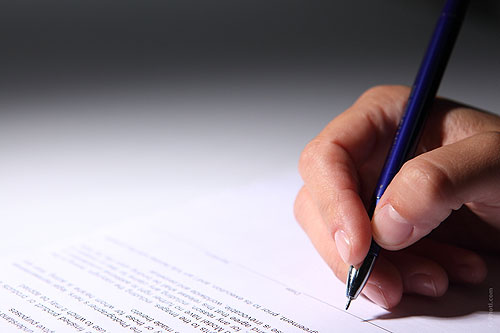In 2008 it was stuff for books: in Once You’re Lucky, Twice You’re Good Priscilla Chan had her lover sign a document with a promise to take her out at least once a week and spend a 100 minutes about the town. Four years later, it is a rising trend.

Throughout the States lawyers are registering the kinds of agreements that read like the one in the book: couples to be married seek to express their emotional expectations in a writing form which is known as “pre-prenups.” Partners who live together go for cohabitation agreements in a big way, the number of these having grown by 39% in the past 5 years, as emerged in a survey conducted by the American Academy of Matrimonial Lawyers.
While several years ago cohabitation agreements served as a kind of prenups for homosexual couples, it seems that those feeling in need of it are now heterosexual partnerships, the AAML survey found out.
A traditional prenuptial agreement deals almost exclusively with financial issues to be resolved in case of a divorce, whereas people are needing another kind of agreement where they could define their expectations in terms of everyday life. It may relate to obligation in house chores or the amount of time couples would like to spend together.
Commenting on the trend to CNN, Ken Altshuler, AAML’s president, called the increase of pre-prenups “really dramatic.” He said that there is a distinct tendency to delay marriage or even forgo it, because people feel they have a lot to protect, especially with age.
Other opinions from family experts are that it’s nothing new. It’s the issues that have been relevant for centuries, says Paul Hokemeyer, a New York-based therapist interviewed by the New York Times; only they tended to be mostly verbal, and now it is changing, and people prefer to have them fixed on paper.
Said Kelly M. Roberts, a family therapist from Oklahoma City: such agreements give “each party … a chance to draw a line in the sand or negotiate.” Couples have “relationship capital” as well as a common economic one.










